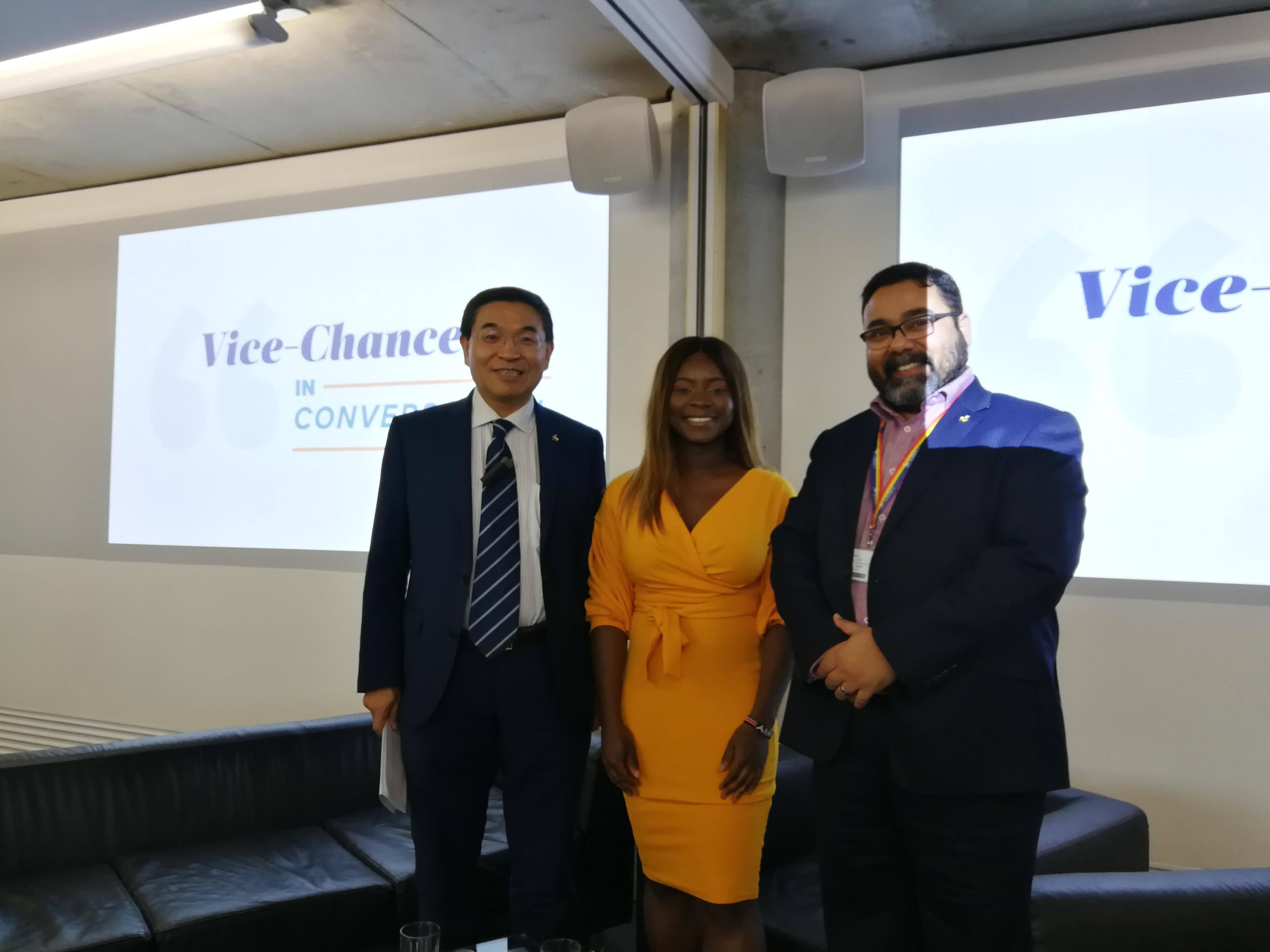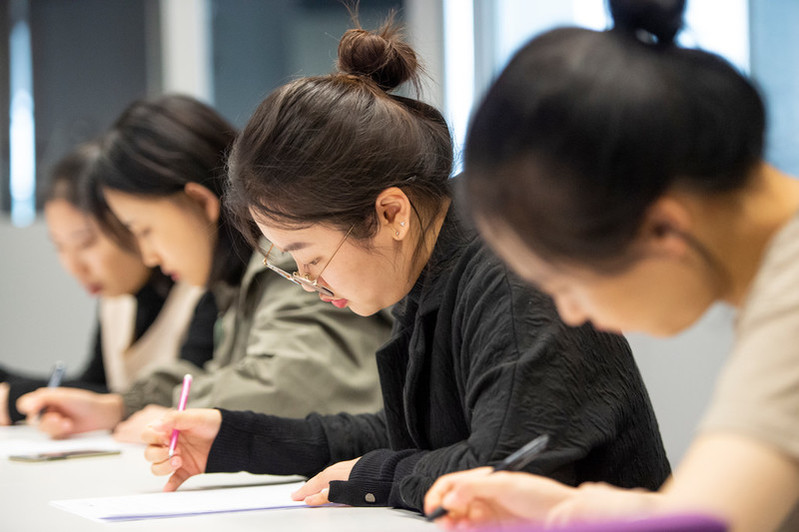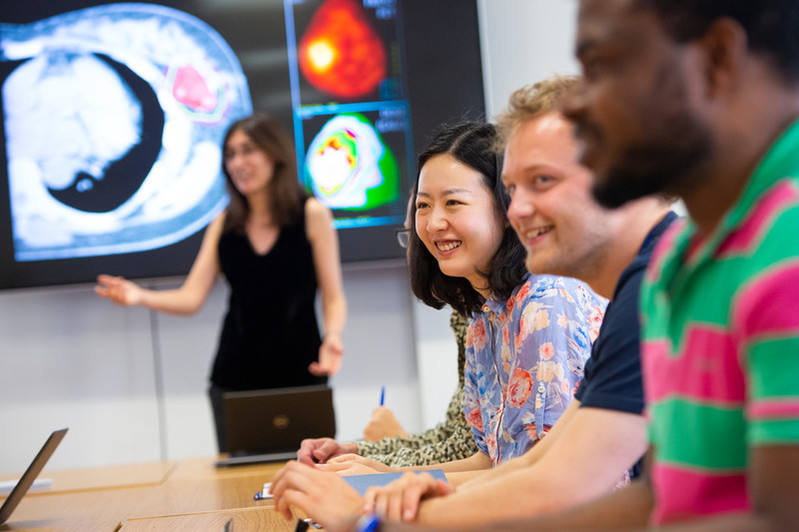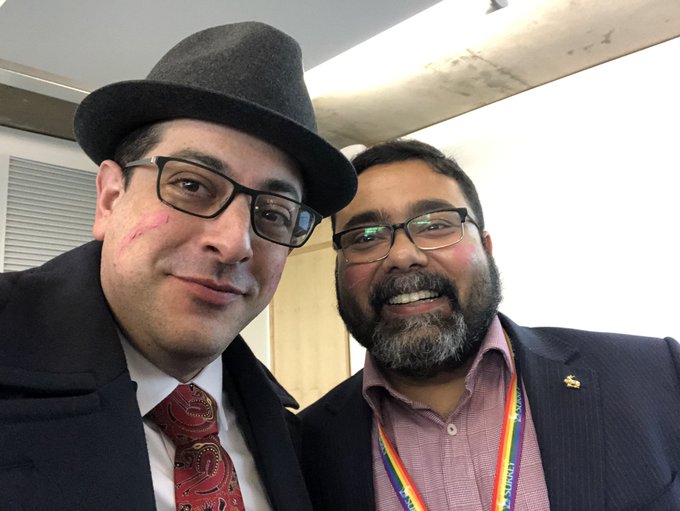As I write, the world is facing the extraordinary challenges brought about by the coronavirus pandemic. Its impact on our lives is unprecedented. Events of even a few weeks ago now seem to belong to the distant past. However, seldom has it been more vital to maintain a positive attitude in the face of uncertainty. Whilst recognising the much broader difficulties we have to overcome in the immediate future, it’s important to continue tackling other vital issues for our mission.
This month’s ‘In Conversation’ topic was the Black, Asian and Minority Ethnic (BAME) award gap and BAME student experience more broadly. This is one of the most important issues — and biggest challenges — facing Surrey and Higher Education generally. Student experience is very important to us at Surrey; we want all our students to thrive, succeed and most importantly enjoy their time at university. Our discussion put BAME experience front and centre – and was all the more relevant for being a conversation between three BAME people: myself, Professor Osama Khan and Students’ Union VP Voice Ajay Ajimobi. We explored how our personal experiences have shaped our ambitious plans and priorities for this year and beyond.

The numbers are sobering. Surrey’s statistics at our 2019 graduation show attainment of a ‘good’ degree at 87.9 per cent for white students, 68.1 per cent for BAME students, 62.1 per cent for black students, and 31.3% for students who are black and male with a Business and Technology Education Council (BTEC) qualification. This means that Surrey’s attainment gap between white and black students was 26 per cent in 2018/19, which is higher than the sector gap of 23.1 per cent.
This is not acceptable. We have promised the Office for Students that by 2025 the award gap at Surrey will drop to 6 per cent. We are determined to produce both a workable strategy and specific actions to get us to our goal.
Paradoxically, Surrey’s access is better than the sector’s as a whole. Our community is diverse – and this can act to highlight any inequalities that do exist, which in turn allows us to address them more readily.
Closing the award gap: what does it mean?
Why is closing the award gap so important?
First and foremost, it’s about humanity. When I moved to the UK to take up my role at Surrey, I was deeply impressed to learn that fundamental freedom and equality are protected in law thanks to the Equality Act 2010, which secures and anchors this nation’s commitment to justice. This confers a public duty to uphold this principle in everything we do. So, Equality, Diversity and Inclusion is simply the right thing morally, ethically and legally.
I spoke about this topic recently on Holocaust Memorial Day, when I said that a community of the mind does not make distinctions on the grounds of nationality, religion, sex, race or any other identity. Our advance in knowledge, wisdom and understanding can only be enriched by a diverse and inclusive community. Respect for each other as individuals and equals is one of our core values. We are resolved to vigorously fight exclusion or discrimination towards any section of our community, on any grounds.
Secondly, it makes good business sense – evidence shows that organisations that embrace EDI principles are more profitable, more sustainable, more dynamic and less likely to fail.
As Ajay pointed out, we need to have these conversations in order to do our best for students: they are here to make the most of this opportunity to study and achieve, and barriers to this must be dismantled as a matter of urgency.

BAME experiences in HE: students, staff and academics
Our discussion ranged across the importance of mentors, the role of allies, when self-reflection on personal sensitivity is the right approach, and re-defining the notion of ‘assimilation’ as mutual exchange and understanding instead – which benefits all parties in the relationship and means that no one is exempt from the responsibility to learn, grow, reach out and adapt.
We all had anecdotes about life as a minority in HE – some negative, some heartening. When I was a young PhD student in Australia – when the right-wing movement there was gaining strength — a Filipino friend was attacked; it was an isolated incident, but it was still so important that we stood together and reported it to both the police and the university authorities. I was reassured by the strong support we received from my Head of Department; he and the police took the case very seriously.
Conversely, I can’t forget the great times I had cooking Chinese meals for my white Australian colleagues and being taught Aussie swear words in exchange – some things never change!
We spoke about the strong bond we feel especially with other BAME colleagues in HE who achieve and inspire – although our mentors span every race and relationship. Osama mentioned the leadership qualities he has learned from his mother and sisters, and remarked that he finds so much inspiration in younger people as he gets older.
For myself, I really admire the present VC at the University of Queensland, Professor Peter Hoj, who has been tireless in advancing the EDI agenda, and my PhD supervisor Professor Duong Do – a prodigy Vietnamese Colombo scholar – who taught me so much about far more than academia.
It just proves how important mentors are – especially to BAME students, whose attainment and outlook are immensely improved by seeing others like them achieve. Ajay’s valuable focus groups with black students at Surrey confirm this. Her research also identified further points of direct concern and impact to our black students; recommendations included:
- A Centre for Wellbeing specialist with an understanding of cultural issues around BAME and international students and wellbeing. There are many and nuanced reasons why these students may not speak up and ask for the support they need, and many subtle differences between groups that are often overlooked;
- Mandatory Unconscious Bias training (we learned from Equality & Diversity Adviser Michael Hassell that ‘Power and Privilege’ is the theme of Unconscious Bias training starting from mid-March);
- An award specifically for the BAME student who has made outstanding contributions to diversity and inclusion efforts; this would also be a way of adding to the BAME role models on campus.
I would add to these by encouraging senior academics to look at their departments honestly; what can we do to improve their diversity? There are only 16 BAME people in senior leadership positions across 155 UK universities – this hardly reflects the makeup of the student body. The diversity of our staff is very important for our students as role models; it is integral to how they frame their own prospects, ambitions and goals. Surrey is very multi-cultural and strong in its international identity; I would like to see multi-culture awareness and celebration strengthen, and our support for students become more nuanced and targeted. The curriculum review that Osama has undertaken is playing an important role through goals like decolonisation of the curriculum.
Universities and social mobility more broadly
It’s a virtuous circle: better attainment and awards encourage more BAME students to attend university. That’s got to be the best outcome for individuals, communities, the UK and society at large.
And this is a clear link with social mobility, of course.
A recent article in THE about universities and civic engagement spotlights a report for the Welsh government titled Maximising universities’ civic contribution. This report outlines the ways that universities act as “anchor institutions” in their towns, cities and regions: in addressing employer demand for skills, as major employers, as purchasers of goods and services, and as a “global gateway for…attracting investment and mobile talent to the area”.[1]
And, as former MP Justine Greening pointed out in a Guardian article about the Social Mobility Pledge, ‘universities are on the frontline in the fight to spread opportunity more fairly too.’ [2] We in the Higher Education sector are uniquely placed to remove social barriers early on. While rankings and league tables are important and have their place, if HE is to be truly impactful it must serve not only its present students but its future students too, by reaching out and ‘lifting up’ in ways that only we can. We want to support social mobility as a living promise, as diverse as the people it touches.
As Osama remarked at the end of our ‘In Conversation’ session, ‘It’s all about a sense of belonging.’ The importance of belonging to a community is a value shared by all of us, and if we start with this principle, then we can help each other with it every day. We can ask questions before making assumptions, hear each other’s voices and prize our shared humanity. In this way, mutual understanding engages and benefits the entire community.

After such a meaningful session, it was a fitting final touch to have audience member Meeta Joshi, Surrey’s Hindu chaplain, at hand with pink gulal powder to dust our faces in celebration of Holi Festival. Holi is a celebration of colour, spring, love and friendship – the perfect analogy for Surrey’s pursuit of relationships of genuine understanding and cultural exchange across our richly diverse, talented and friendly community.
The present challenges around coronavirus will, I am certain, leave us wiser and more resourceful for whatever the future holds. I have already been heartened by the determination and solidarity across the entire University of Surrey community. I have seen Surrey staff work hard to connect with and support each other, offer new solutions, take on colleagues’ extra tasks and work long hours to make sure our students receive the most up-to-date information and reassurance possible. I am amazed at the speed, agility and ingenuity of our staff in transitioning to online teaching and assessment. Crises like these reveal the true nature of any team or organisation, and show us what we are capable of.
Whilst we still have many challenges ahead, it helps to know that we are not alone and that all individuals and institutions across the world are facing the same issues. As a result, there is a strong sense of global unity that shows us how it is possible to work together, share and communicate in any circumstances going forward, whether stable or volatile. It makes me confident that whatever issues we address here at Surrey, we have the vision, determination and spirit to succeed for our entire community.

[1] https://www.timeshighereducation.com/news/welsh-civic-engagement-move-spotlights-english-dilemma
[2] https://www.theguardian.com/education/2019/apr/17/universities-are-about-social-mobility-this-needs-to-be-recognised
